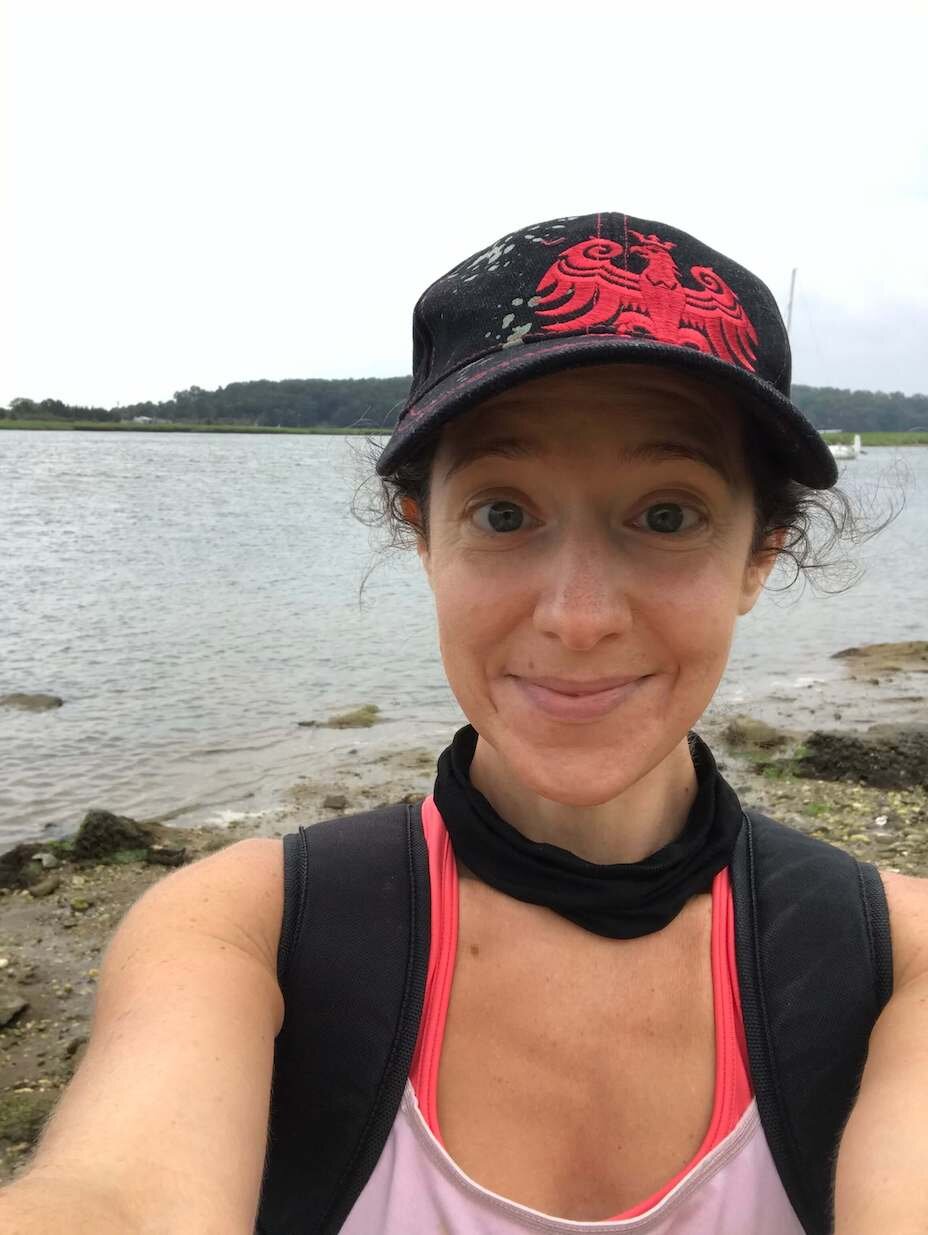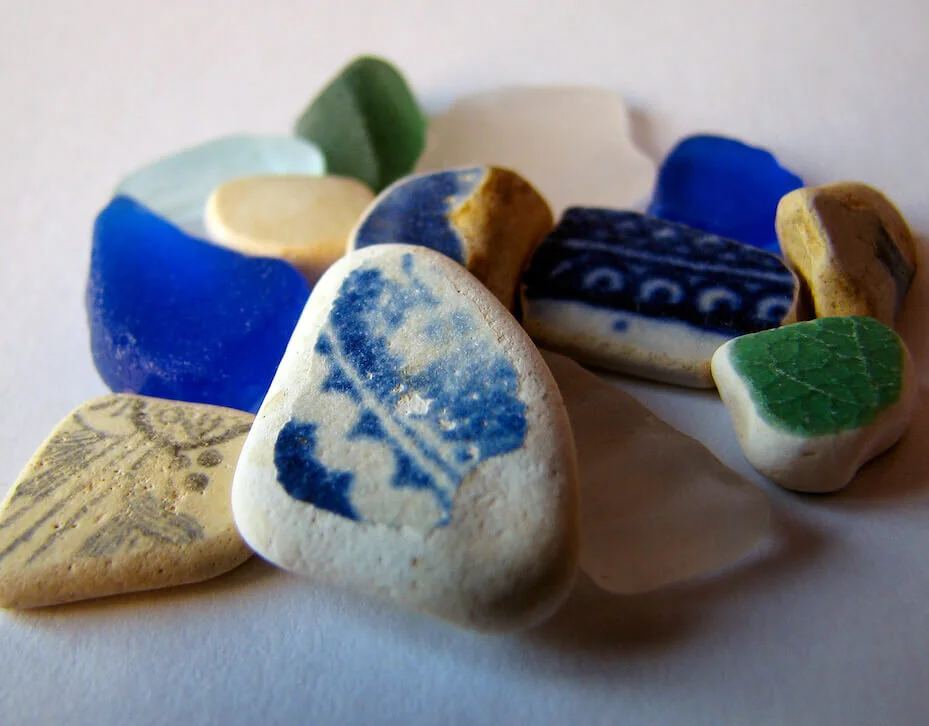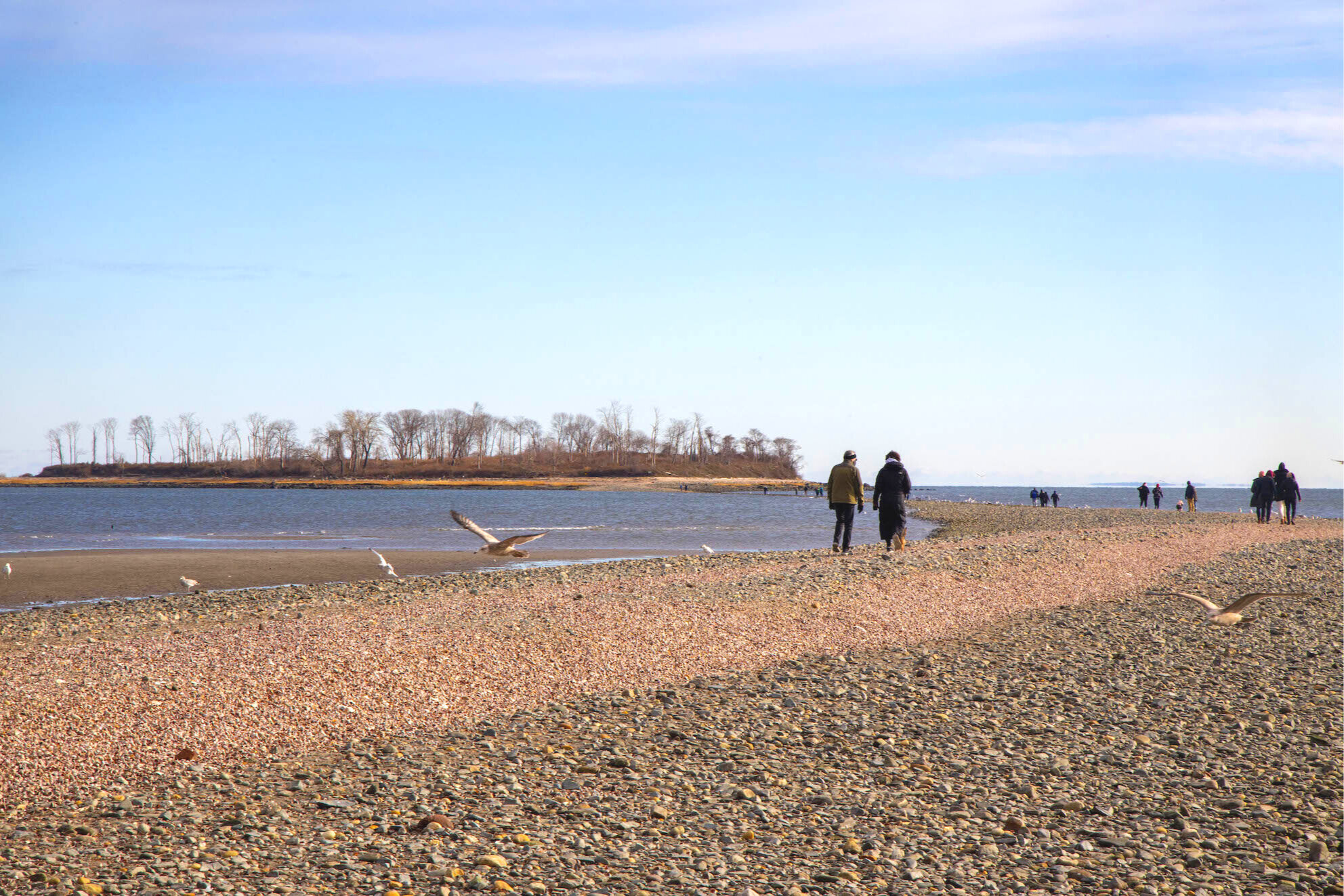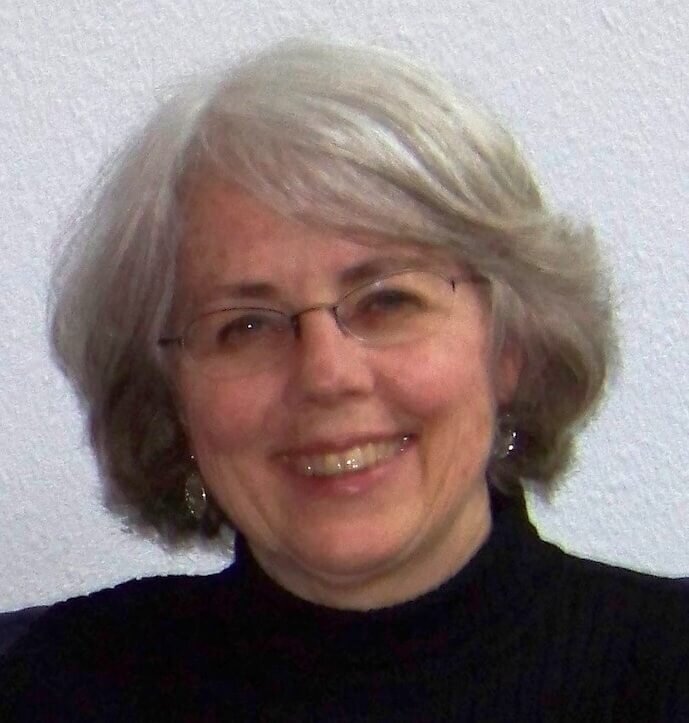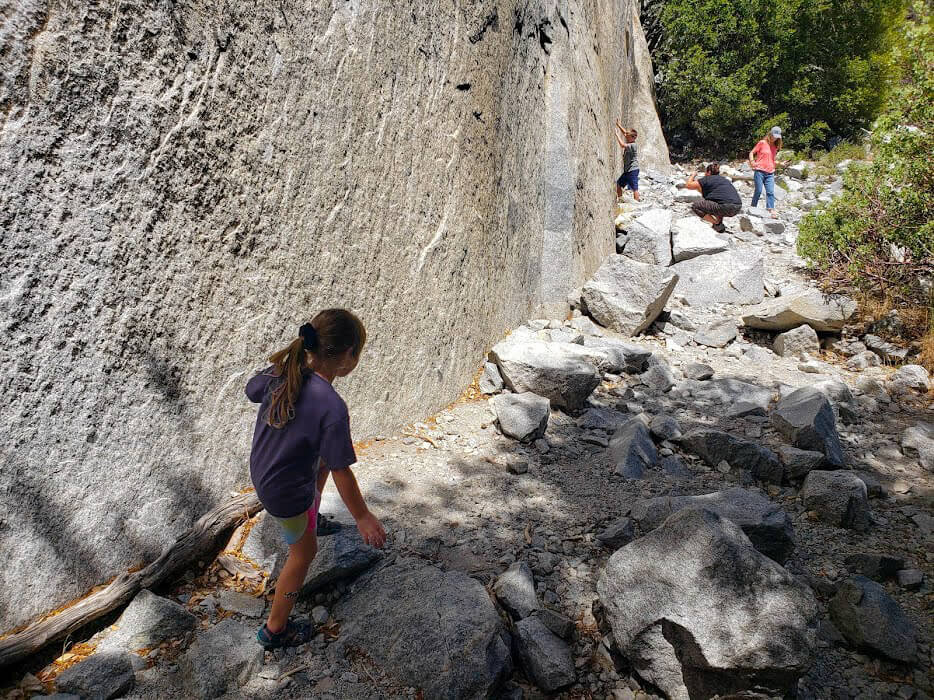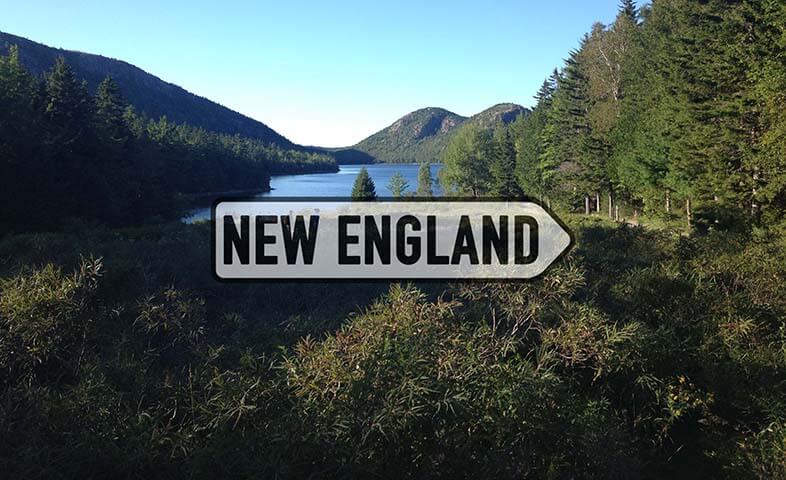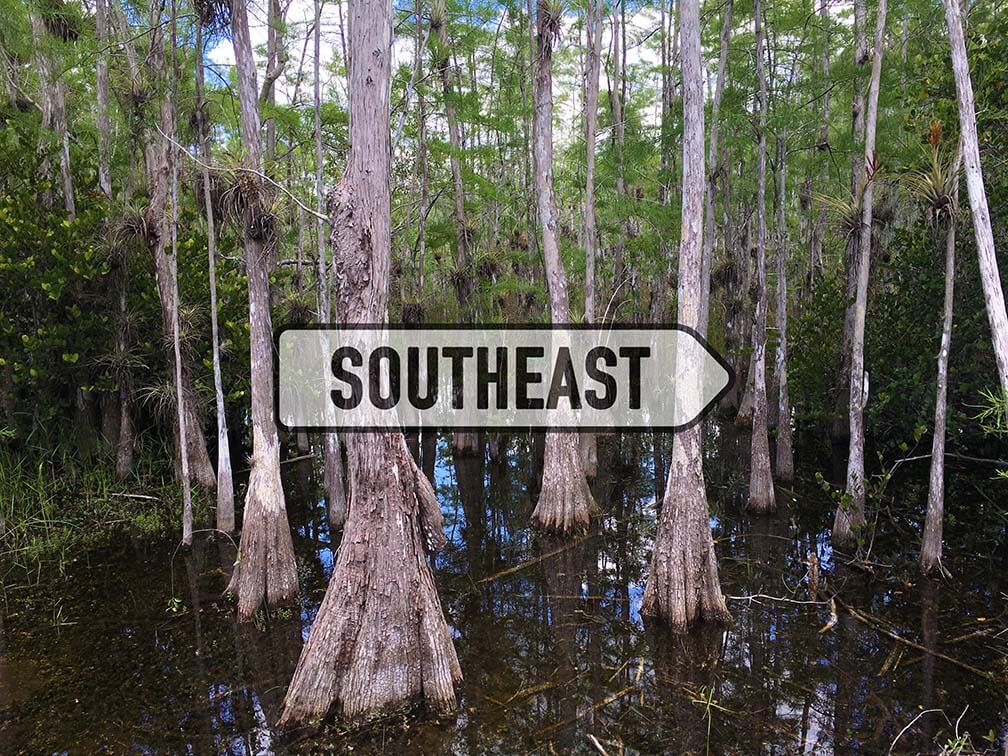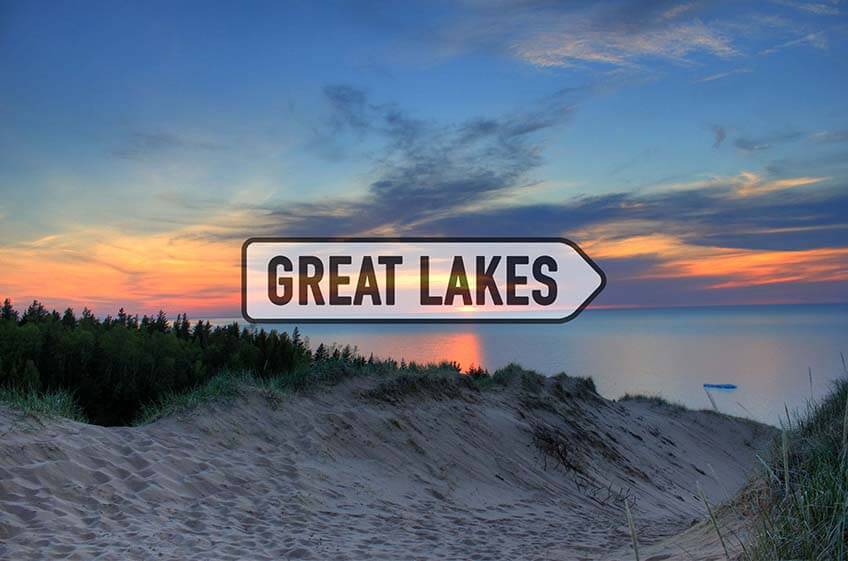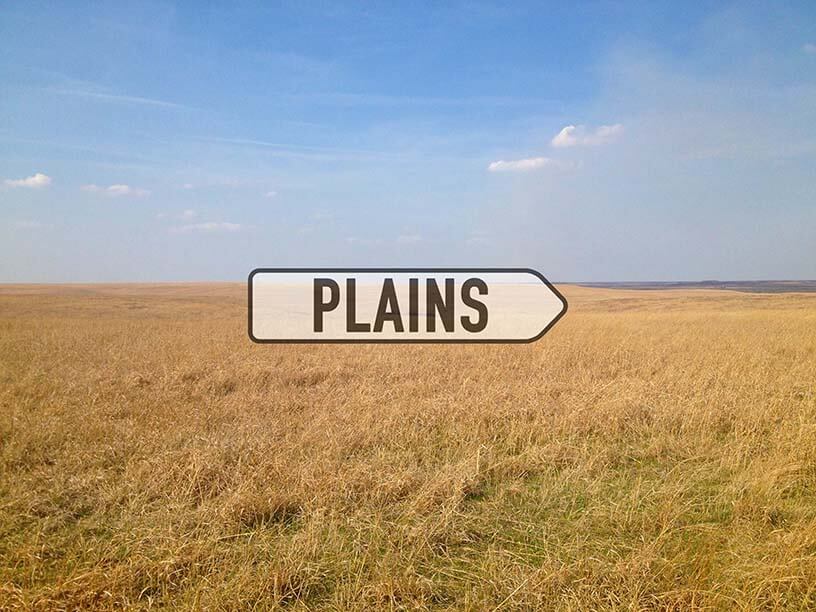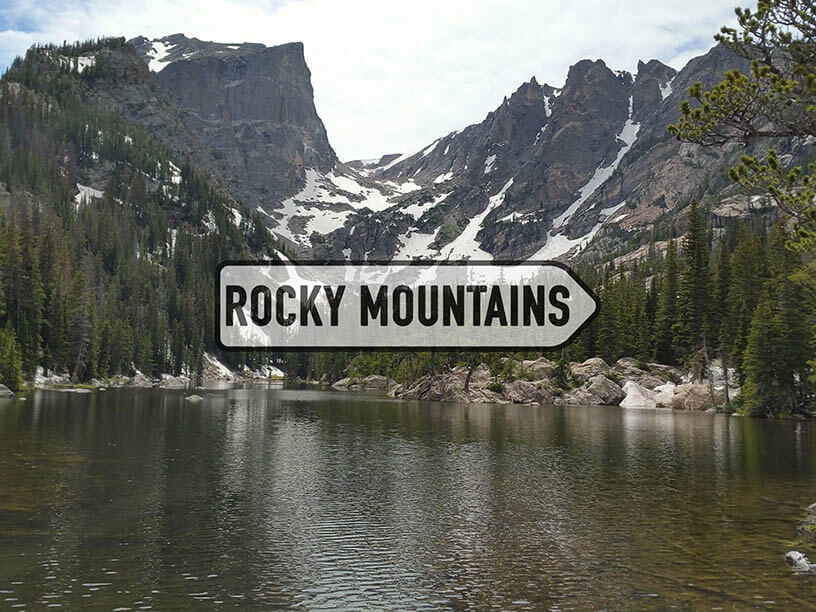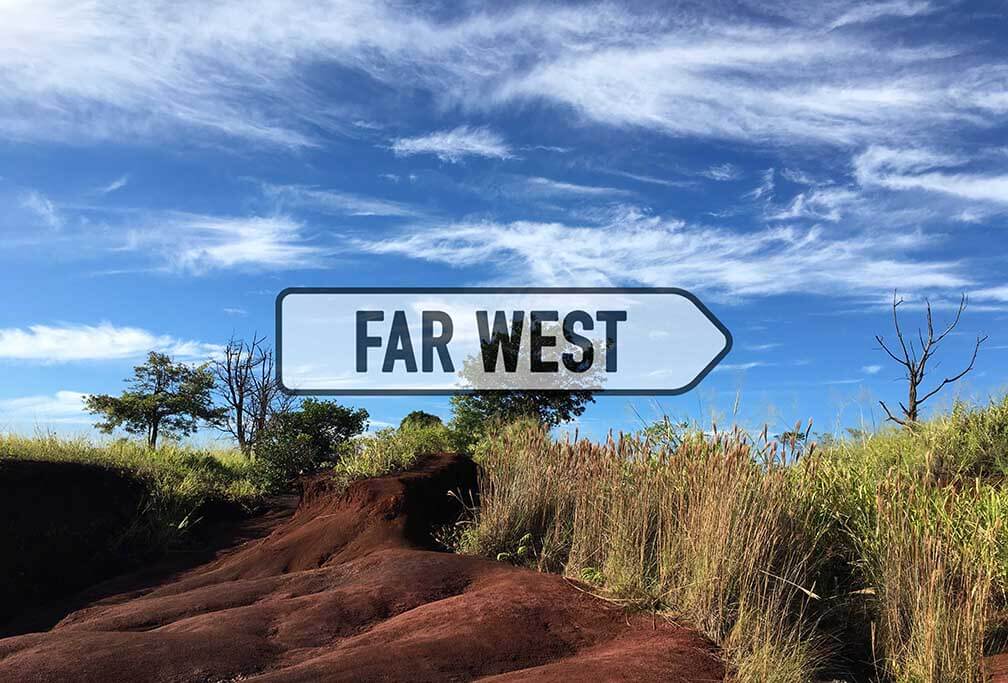I’m here at the window again
watching the morning sky:
white clouds puffy as marshmallows
the girls roasted on sticks last night
over dimming coals.
Such a warm evening. No wind.
Flat water. Heat of the beach fire.
Their last night on the island,
tired from nights up late
in the tent. They have packed
their small bags: headphones,
bug spray, sweatshirts, carefully
wrapped shells, perfect owl feather,
and the one or two agates
they’ll keep for a while on a dresser.
They want to take the low tide
walk today to Pt. Hammond:
around two rocky points, across the seam
of clay that flows, slippery, right down
to the water, past sliding sand cliffs,
a field of barnacles, onto sand flats
stretching to the point, smooth mound
of lichen-covered rock that flows
into the deepest blue. From the top
you can look down on a flurry of minnows
turning together like silver flake,
or sometimes see the dark wings
of a skate drifting in a cobalt abyss.
Purple starfish cling in the crevices
at the waterline, though mostly
they are gone now.
Walking barefoot along sand flats,
warm tide soaks your ankles
as the sea pulls back from the beach
uncovering it slowly,
like a lifetime of wonder. I hope
they wake in time to go, to gather
summer’s freedom into them
for the long trip home.
A native of Seattle, Alicia Hokanson grew up exploring the beaches, forests, and islands of Puget Sound which inspired her deep attention to the natural world.
Her first book, Mapping the Distance, was selected by Carolyn Kizer for the King County Arts Commission publication prize. Brooding Heron Press published two chapbooks, Phosphorous and Insistent in the Skin. A new book, Perishable World, will be published by Pleasure Boat Studio press in spring 2021.
Featured image courtesy Wirestock







